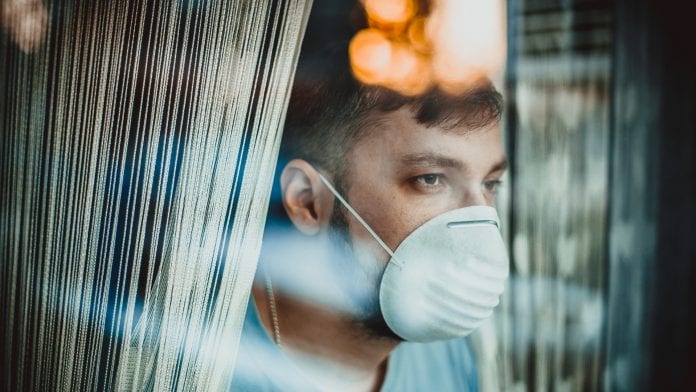
New research has shown a drop of more than third in the number of people seeking help for mental illness or self-harm during the national lockdowns in the UK.
The research involving 14 million people registered at general practices across the four nations of the UK discovered that during April 2020, while the UK was in full lockdown, the number of incidents of poor mental health, such as depression, recorded in general practice records dropped by 43%, anxiety disorders by 47.8%, and prescribing of antidepressants by 36.4%.
The study, Effects of the COVID-19 pandemic on primary care-recorded mental illness and self-harm episodes in the UK: a population-based cohort study, has been by conducted by the National Institute for Health Research Greater Manchester Patient Safety Translational Research Centre (NIHR GM PSTRC) and published in The Lancet Public Health.
Professor Dame Til Wykes, Senior NIHR Mental Health Researcher, said: “As this research makes clear, now is not the time to suffer in silence. More than ever, people experiencing depression, anxiety and other mental health issues should seek the help they need from the health service, and family and friends.
“NIHR has recognised the challenges that mental health issues have posed during COVID-19 so have funded this project with UKRI, as well as other research to investigate and reduce the impact of the COVID-19 pandemic on mental health.”
Lockdown concerns
The research identified a general trend of people not seeking help for mental health during the month of April, as well as uncovering mental health treatment gaps, finding that this was greatest for people of working age and those registered at general practices in more deprived areas where the reduction in diagnoses was greatest.
It has also revealed the number of people presenting with self-harm was 37.6% lower than expected in April, with the greatest reduction in females and those aged under 45.
Study lead, Dr Matthew Carr from The University of Manchester, said: “It is widely believed that there was an increase in the number of people with symptoms of mental illness in April due to the extra pressures from the lockdown. However, our research has revealed a sharp reduction in recorded illness diagnoses and self-harm episodes. By September 2020, our data shows that these frequencies had returned to near normal in England.
“This research is so important because it shows the scale of the drop in the number of people seeking help, and, crucially, the treatment gaps.”
Professor Carolyn Chew-Graham, a GP in Manchester and Professor of General Practice Research at Keele University, and part of the research team, said: “This research mirrors my clinical experience. Consultation rates reduced in April and May, with people following the ‘Save the NHS’ message. Since the early summer we have noticed increasing demand and, particularly, increasing distress in patients.
“The impact of this work for primary care is that we need to make it as easy as possible for people who are distressed to consult their GP, but balance this with the need to keep footfall as low as possible in the practice, in accordance with NHSE guidance and COVID-19 restrictions. Primary care clinicians need to ensure that when consulting patients remotely, they offer time, empathy and understanding and facilitate people to disclose their concerns, which both parties might find more difficult in telephone or video consultations. Managing risk and dealing with uncertainty are now even more important for primary care clinicians.”






















